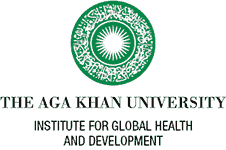Polio Eradication
The Last Mile - Community Engagement and Conditional Incentives to Accelerate Polio Eradication in Conflict-affected Areas of Pakistan
.jpg)
Background
- Long-standing resistance
Pakistan and Afghanistan are the only countries in the world still fighting Poliomyelitis (Polio), where children’s health and wellbeing remain at high risk, especially in the conflict settings.
Immunisation, including Polio vaccine, is considered a significant and cost-effective intervention to reduce morbidity and mortality amongst children under five. However, the utilisation and acceptability of immunisation and other community health outreach programmes are greatly influenced by religious, political, socio-economic, and cultural factors.
- Reemergence of Cases
In the high-risk areas of Pakistan, more notably in the provinces of Khyber Pakhtunkhwa (KP), Balochistan, and some areas of Karachi, there has been long-standing resistance towards the uptake of polio vaccine for multitude of factors.
In 2021, efforts to eradicate polio were truly remarkable. Even with the resource-restrained healthcare delivery during the COVID-19 pandemic, only one case was reported throughout the year. However, after 15 months of zero reported cases, two cases reemerged in North Waziristan in April 2022.
The government of Pakistan has reaffirmed its commitment to end Polio and announced vaccine campaigns with renewed rigor.
Project Objectives
The project aims to reduce vaccine refusals and improve polio immunisation coverage in two super high-risk union councils: district Karachi, Sindh and district Bannu, KP. It will also assess feasibility (acceptability, practicality, integration, and expansion) of the intervention for a potential scale-up.
Project Description
To facilitate the efforts of the Government in Polio eradication, this one-year project will target children under the age of 5 years in the select UCs. It will approach the challenge in three fundamental ways:
- Participatory community engagement
- Demand creation with trust-building community mobilization
- Conditional community-based incentives
The research team will engage with multiple village/mohalla committees in the intervention UCs to address and eliminate misconceptions. They will work towards earning the buy-in of UC leadership, local elders/prominent male and female community members, and religious leaders and train them to disseminate knowledge and influence behaviours amongst residents.
The community-based incentives will be conditional based on the decrease in vaccine refusal rates within stipulated time. Communities successful in achieving these targets will be rewarded incentives to improve their infrastructure, including sanitation and hygiene, and water resources.
Team
This is a project of Institute for Global Health and Development (IGHD), Aga Khan University in collaboration with the Ministries of Health, Sindh and KPK, Emergency Operations Centre, and Pakistan Polio Eradication Programme.
It will be implemented through the generous funding from Falcon Award by Global Institute for Disease Elimination (GLIDE).
Dr Zulfiqar A Bhutta, Distinguished University Professor and Founding Director, IGHD and Dr Jai K Das, Assistant Professor, Department of Paediatrics and Child Health and Assistant Director, IGHD are the lead investigators.


